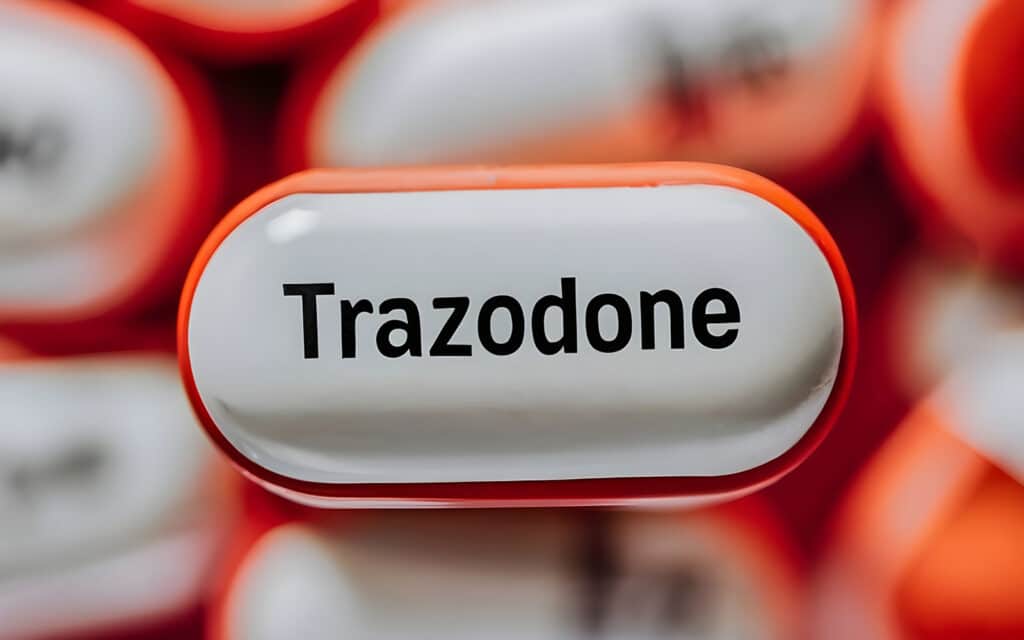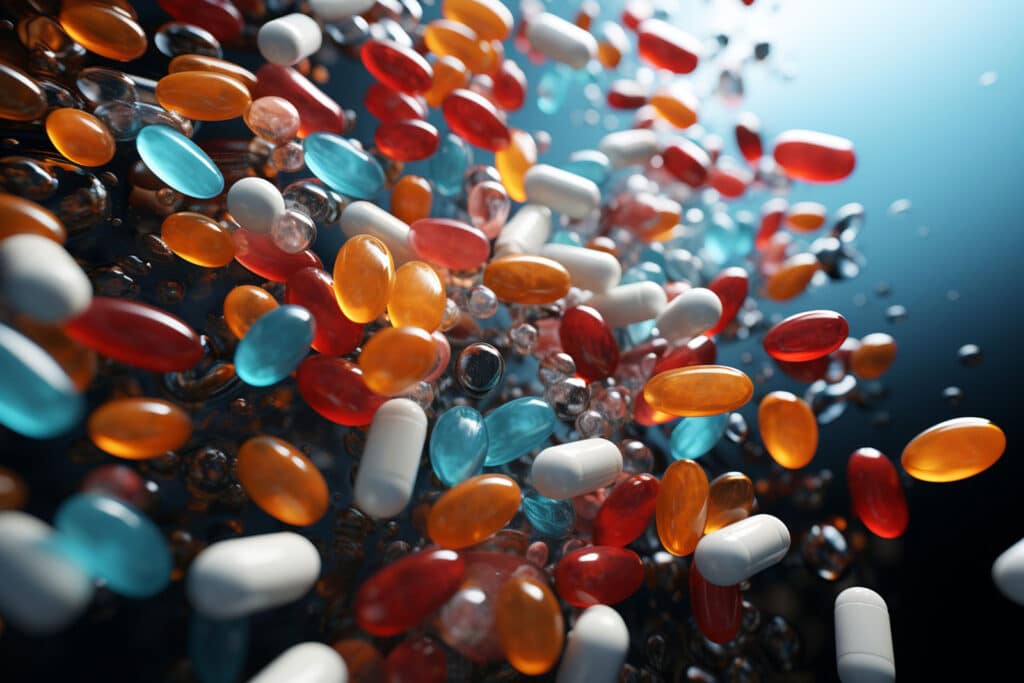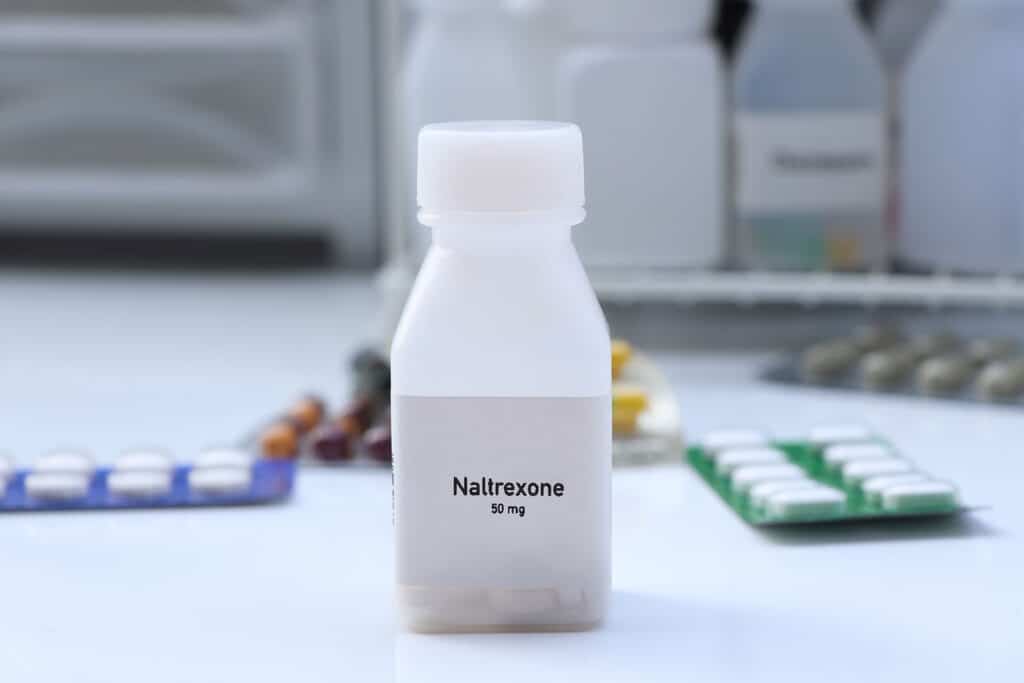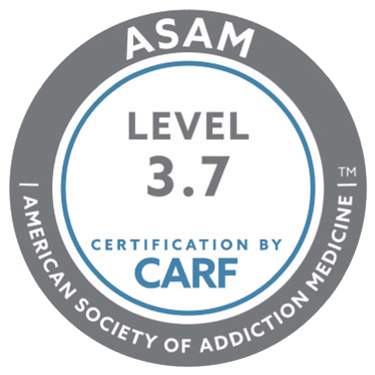Trazodone is a common prescription drug that was approved by the gov agency–Food and Drug Administration (FDA) and is used primarily as an antidepressant and a sleep aid. It’s been shown to be effective in treating depression, anxiety, and insomnia, and it generally isn’t very dangerous when it’s used as directed. Unfortunately, it is also often abused by people who are looking for the “trazodone high,” or the feeling of euphoria that can come with taking trazodone. Although trazodone isn’t as dangerous as other substances such as heroin or alcohol, drug abuse or substance abuse can still lead to serious problems such as addiction and overdose, resulting in serious substance use disorder and mental health conditions.
Let’s take a close look at what trazodone is, how trazodone works, and why chasing the “trazodone high” is so dangerous, especially to young adults, its sedating effects, and addiction treatment.
Understanding Trazodone
Trazodone is a medication that is commonly prescribed as an antidepressant. Some of its brand names include Desyrel, Oleptro, and Trialodine, although generic trazodone is also often prescribed. It works by boosting levels of a chemical called serotonin, which helps regulate your mood. Trazodone is often used to treat major depression, anxiety, and insomnia that may be related to depression. It is also sometimes used to treat schizophrenia, and it has been shown to increase appetite.
It may take between two and four weeks for trazodone to take effect. Taking more than prescribed won’t speed up this timeline, and it could increase the risk of side effects of trazodone, such as nausea, vomiting, diarrhea, drowsiness, dizziness, headaches, and weight changes.

The Concept of a “Trazodone High”
Trazodone is a sedative, among other things, which is why it is often prescribed as a sleep aid for those with insomnia. The fact that it increases levels of serotonin in the brain also means that it can increase one’s mood. In other words, trazodone is a drug that can help you feel more relaxed and more content overall, which can inspire some people to abuse it to chase a high. Some of these people may have been prescribed trazodone and are taking more than directed, while others may have acquired the drug illegally and are trying to get high or cope with problems in their lives.
Although trazodone is typically administered orally, it can also be snorted, smoked, or injected. All of these allow the drug to bypass the liver for metabolism and act faster than it would otherwise. Trazodone is also often mixed with alcohol or other substances to create a stronger, more dangerous high.
Risks of Misusing Trazodone
Although trazodone misuse doesn’t carry as big of a risk as abusing substances such as heroin, alcohol, or meth, it can still cause some serious issues. First of all, it is possible to become addicted to trazodone, especially if it is abused.
As with any addictive substance, it is possible to experience withdrawal when you suddenly stop taking trazodone. Trazodone withdrawal symptoms include:
- Dizziness
- Nausea
- Vomiting
- Chills
- Headaches
While most people who take trazodone as directed likely won’t become addicted and experience withdrawal symptoms, it’s still crucial to only use this medication as prescribed under medical supervision.
There aren’t significantly high rates of trazodone overdose, but it can happen, especially when it’s injected or mixed with other sedatives such as opioids or alcohol. Symptoms of a trazodone overdose include:
- Vomiting
- Drowsiness
- Changes in heartbeat
- Difficulty breathing
- A painful erection that won’t go away
- Seizures
Death can occur from a trazodone overdose, but this is rare. Still, any overdose is dangerous, so call 911 if you suspect a trazodone overdose.
Trazodone Abuse and Dependence
The biggest signs of trazodone addiction are withdrawal symptoms when someone stops using trazodone suddenly. Still, you might notice some behavioral changes in someone who is abusing trazodone, such as:
- Doctor shopping or visiting multiple practitioners to obtain more trazodone prescriptions
- Buying or stealing extra supplies of trazodone from other sources
- Using the drug compulsively or taking more than intended
- Hiding trazodone use or lying about it to friends and family members
- Prioritizing trazodone use above all else
- Continuing to use trazodone despite growing financial, physical, or interpersonal problems
Preventing Trazodone Abuse
Although trazodone is abused by people seeking a trazodone high, it isn’t as widely used recreationally as other substances, mostly because it’s relatively difficult to obtain without a prescription. Therefore, the best way to avoid trazodone dependence is to only take the drug as directed by a medical professional. If you are prescribed trazodone, you should continue to take it even after you start to feel better to avoid withdrawal symptoms. Your doctor might prescribe a lower dose once your condition improves to wean you off of the medication as safely as possible.

Treatment for Trazodone Addiction
Treatment for trazodone abuse and addiction typically involves detoxing at a rehab facility. This is done under the supervision of medical staff to manage withdrawal symptoms. After detox, therapy may continue to address the underlying issues that may have caused you to start abusing trazodone in the first place. This could vary depending on your situation, but we will help find a treatment program that is best for you.
If you or your loved one is struggling with life-threatening trazodone addiction and the use of trazodone dependency, know that there is help available. Contact Recreate Behavioral Health, a treatment center and healthcare provider, today for more information about our treatment options.
References
- https://www.transformationstreatment.center/addiction/prescription-drugs/trazodone-addiction/side-effects/
- https://www.webmd.com/drugs/2/drug-11188/trazodone-oral/details
- https://my.clevelandclinic.org/health/articles/22572-serotonin
- https://mountainviewrecoveryco.com/trazodone-high/
- https://medlineplus.gov/druginfo/meds/a681038.html










